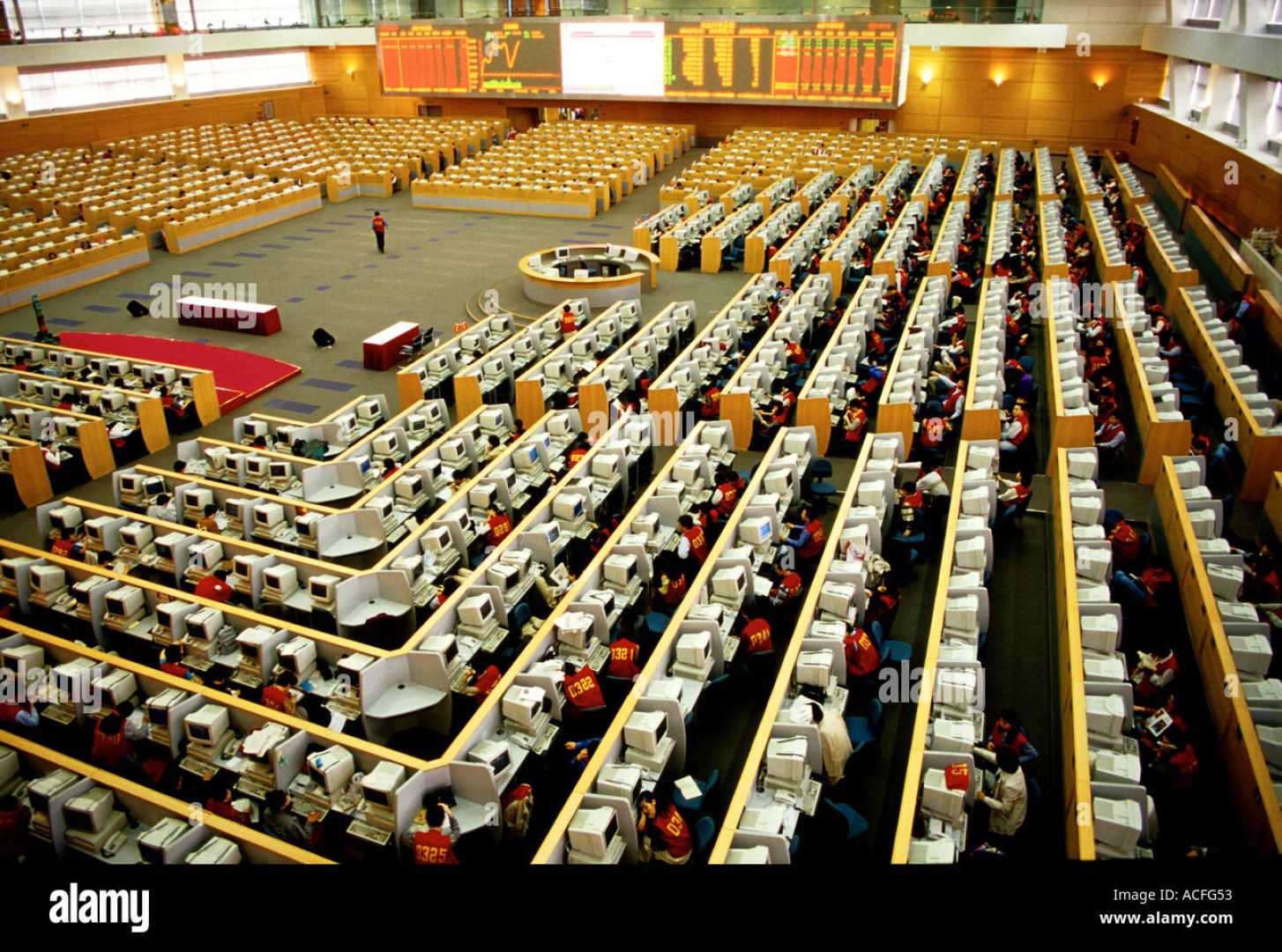Business
Chinese Brokerages Join Forces to Stabilize Market Amid Trade War Escalation

SHANGHAI, China (Reuters) – Major Chinese brokerages convened on Tuesday to support domestic share prices as the local market struggles amidst an escalating trade conflict with the United States. The Shanghai Stock Exchange reported that ten leading brokerages, including Citic Securities and Orient Securities, met to emphasize the necessity of stabilizing the market in light of external pressures.
The discussions followed a U.S. announcement imposing a 34% tariff on imports from China, a move that heightened tensions and contributed to a slump in Chinese stock values. According to a statement from the Shanghai Stock Exchange, brokerage leaders expressed a collective optimism about China’s economic growth and committed to support market stability.
As part of the coordinated effort, over 100 listed companies announced stock buybacks intended to restore investor confidence. Sanyi Heavy Industry Co disclosed it bought back 5 million shares totaling approximately 92.9 million yuan ($12.64 million) on the public market, while XCMG Construction Machinery announced plans to repurchase shares worth up to 3.6 billion yuan.
Prominent state-owned enterprises, including PetroChina and Sinopec, also unveiled stock repurchase plans as part of a directive from China’s state asset regulator, reflecting a broader strategy to mitigate stock market volatility. More than 20 companies controlled by the central government are actively engaging in these buyback programs.
China’s Central Huijin Investment also indicated its role in stabilizing markets by committing to increase stock holdings. It issued a statement expressing confidence in maintaining market operations despite recent fluctuations. “Central Huijin is prepared to act decisively when necessary to support a smooth capital market operation,” the statement said.
Experts suggest that the urgency of these measures reflects a growing recognition of the trade war’s repercussions on the domestic market, with expectations that further government intervention may be necessary. “Investment from state-backed entities will not only provide direct liquidity support but also signal to the market that stability is a priority,” said a representative from China International Capital Corp.
The intensifying trade situation poses a significant challenge to the Chinese economy, with analysts predicting a slowdown in growth prospects. While agri-tech stocks have surged due to tariffs potentially limiting U.S. agricultural imports, the broader market remains jittery as investors react to the fallout from trade disputes.
In summary, the concerted efforts by Chinese brokerages and state enterprises aim to counterbalance the adverse effects of the trade war, reinforcing confidence among investors as the financial landscape remains turbulent.












